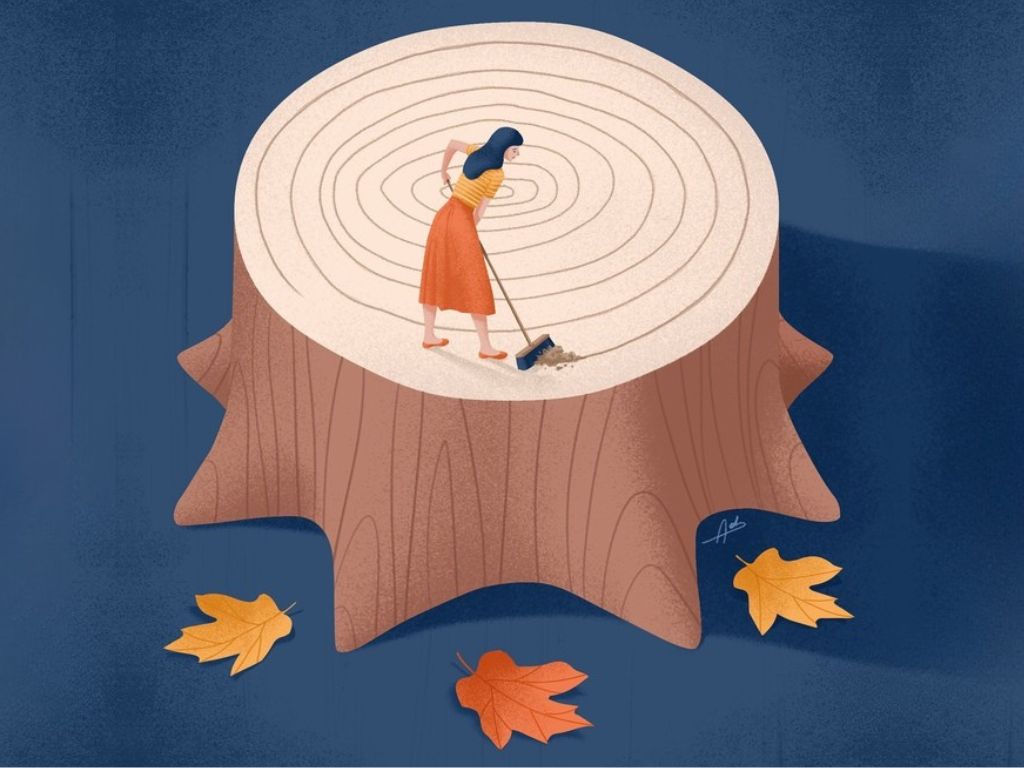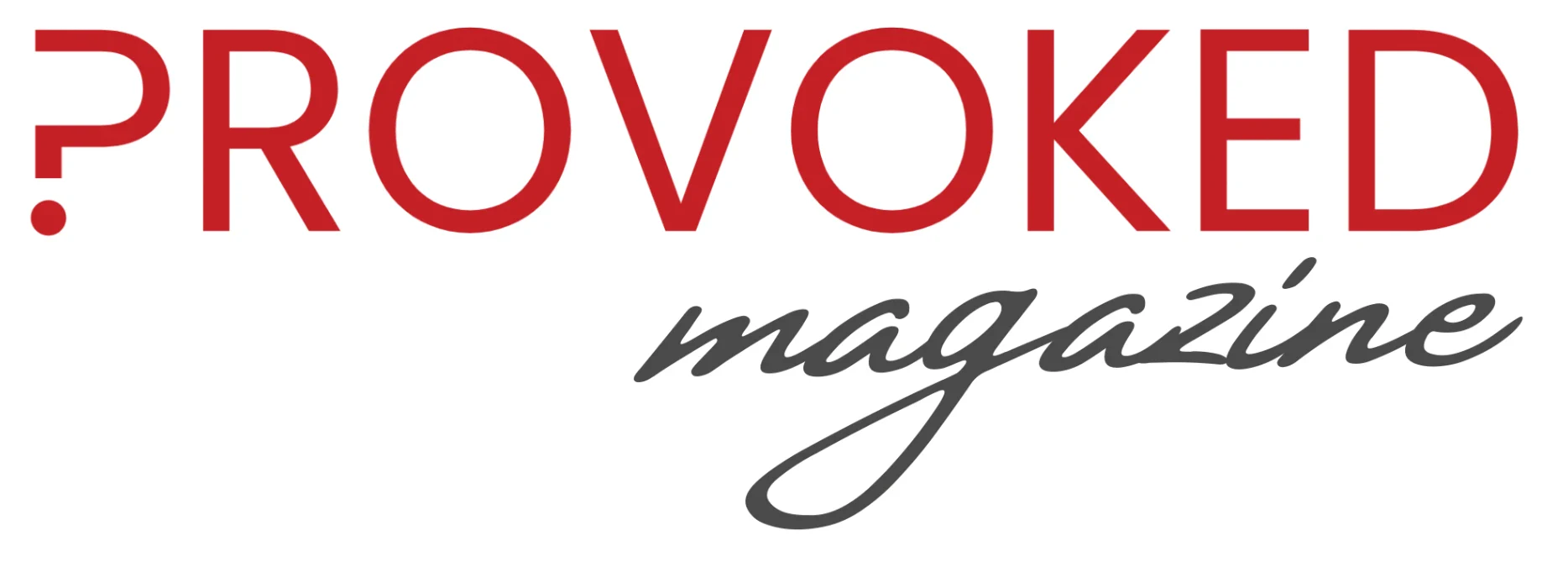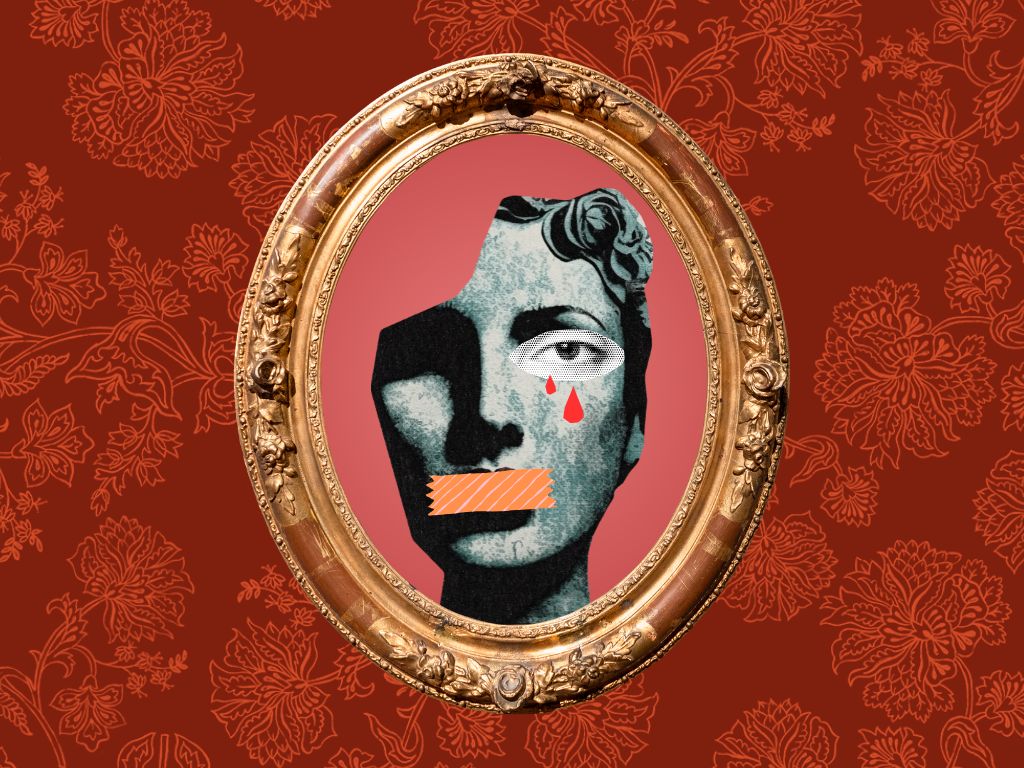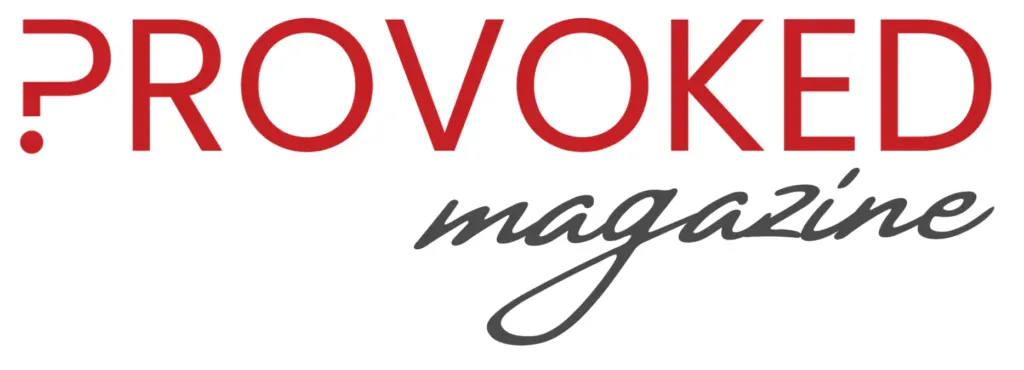
What a Life Review Can Teach Us About Forgiveness, Legacy—and Moving Forward
A couple of years ago, I was watching the documentary Jane Fonda in Five Acts when she mentioned something that stuck with me like a seed waiting for the right season: She had done a “life review” before turning 60—an intentional process of looking back in order to move forward. She did it because she wanted her third act to mean something.
I made a mental note to Google “life review.” Then, as one does, promptly forgot.
Until recently.
I was driving, listening to Julia Louis-Dreyfus’ podcast Wiser Than Me, when Fonda—now in her 80s—told the story again. This time, for me in my 60s, she piqued my curiosity: “You’re an actor, you know how important third acts are. They can make sense out of the first two, right? … It’s kind of a legacy that you’re going to leave behind.”
She described how her life review helped her stop blaming herself, forgive others, and finally recognize her own bravery. And I found myself thinking: Why isn’t everyone over 50 doing this?
Despite all the stories urging older women to keep reinventing their lives, most advice stops at reigniting childhood hobbies—not actually reckoning with the past itself. A life review seems a more useful tool than a hula hoop for moving from one chapter to the next (though I did love mine).
Wait—What Is a Life Review?
A life review, for those of you leary of woo-woo but intrigued nontheless, is more purposeful. The goal is clarity and affirmation—not agony. And despite how it sounds, it’s not nostalgia for nostalgia’s sake.
The term was coined in the 1960s by gerontologist and psychiatrist Dr. Robert Butler. He noticed that many of his older patients were facing depression, regret, and a sense of unfinished business. So he created the “life review” process to help them reflect on the lives they’d lived, accept their pasts, and use that clarity to shape the time they had left.
Reflection, he believed, could lead to meaning. And meaning, in turn, could spark personal and even spiritual growth.
The practice stuck. Today, life reviews are used by trained facilitators, therapists, gerontologists, and palliative care teams to help people find peace, purpose, and perspective in the second half of life.
Would a Life Review Help You?
Here’s what the experts suggest you consider:
Do you find yourself asking:
- Have I made the right choices?
- What exactly is my legacy?
Do you ruminate about:
- The past—what you regret, what you missed, who you hurt, or who hurt you?
- Feeling stuck, uncertain, or invisible?
If you answered yes to any of these, you’re a) normal and b) likely a strong candidate for a life review. Why? Because it’s a structured way to review your past without judgment—and then let it go. For many, it’s deeply liberating.
One Woman’s Story: From Darkness to Light
After losing both her husband and her father, Sylvie King Parris began a life review. “I started unpacking my past,” she said, “examining my strengths and weaknesses, and how my past relationships shaped me.”
That journey became a creative turning point for her. “I began to write from remembered emotions and events, looking at them from different angles.” What emerged was a version of Sylvie she hadn’t fully seen before: resilient, thoughtful, and strong. “I concluded that I’d been handed some significant challenges, made mistakes, but weathered through with tenacity, a focus on the now, and a deep-seated mindset of compassion.”
A far cry from the woman who began her review in the depths of sadness.
What a Life Review Looks Like–and Why It Matters
Think of a life review as your personal documentary—only you’re the narrator and the audience. It walks you through the major stages: childhood, careers, and relationships. You can do it solo, in a group, or with a therapist who may blend in cognitive behavioral therapy or grief work. The process is usually short term, but its impact? Long-term clarity.
The Tools: Life reviews use simple but powerful tools to help you sift through your past:
- Journaling
- Guided timelines
- Music and memory prompts (cue the soundtrack of your life)
- Legacy projects like memoirs
The Tone: Forget diagnoses. A life review isn’t clinical—it’s compassionate. This isn’t about fixing your past. It’s about understanding it, finding meaning, and shaping what comes next.
Elizabeth Havey, a nurse who lost her father at age three, shared how looking back filled a lifelong void. “I felt going into nursing would bring me closer to him. It did.” Revisiting her story helped her see her struggles—and triumphs—more clearly. “Joy and sorrow form us,” she said. “We need to grow in our acceptance of both.”
In the end, a life review isn’t just about where you’ve been. It’s about where you’re ready to go.
Why This Is the Perfect Time
As we get older, our lives often shift away from career milestones or raising families. That can leave us wondering: Who am I now?
The simple act of naming what we’ve done—and survived—can restore something we may have lost along the way: our sense of self.
So, who do you want to be in the next chapter of your life? And what would it look like if you were the one writing it?
Begin Now Before You Change Your Mind
Here are a few ways to get going:
Look for a certified facilitator. The Birren Center for Autobiographical Studies is a good resource, as is the International Center for Life Story Innovations and Practice at the University of Connecticut, where you can ask for a referral.
Not ready for a full facilitator review? For a gentle on-ramp, try:
- Storyworth. Essentially, you answer one question about yourself a week for a year (photos welcome) and then you can have it all printed into a book. This is more about the legacy aspect of your life, but through the process you’ll certainly have the opportunity to reflect and find meaning.
- AI. While there’s nothing like a human for interpretation and emotional support, AI can offer questions and provide a structure to get you started.
Prefer to go solo? Here are some resources:
- Clark University Life Review Interview Manual
- The Thrive Center’s Life Review Questions (this questionnaire is also part of the Clark Manual)
Some therapists are also trained to do life reviews, but you’ll need to ask.
The Question That Cued the Tears
In the name of science, I tried a single life review question. It wasn’t as easy as I expected:
“If you had to pick one person who significantly impacted your life, who would it be? And why?”
I’ve never been great at narrowing down lists to one. But I forced myself to follow the rules, just to prove I could (something to unpack in a review?).
The answer? My maternal grandmother.
She made me feel safe. Beautiful. Respected. Loved. Her life was simple—others might say plain—but her home was my sanctuary. I still hear her voice: Melissa, darling. Still feel the warmth of her hand in mine.
Answering the question opened the floodgates that I work pretty hard at keeping closed. Why?
Honestly, it’s easier. Feelings can be exhausting. For some, they can also be triggering.
But what if this time it’s different?
What if looking back helps us see our past—and ourselves—in a kinder, brighter light? What if it lets us imagine what’s still possible?
I’d sign up for that.
Stop to Move Forward
Maybe the most radical thing we can do right now is … stop.
Stop to reflect.
Stop to take stock.
Stop to shape the legacy we still have the power to guide.
Nobody needs to carry fear, regret, or pain forever.
The truth is: It’s never too late to become the person you were meant to be.
A life review doesn’t ask you to relive your life.
It asks you to understand it.
To give it perspective.
And in doing so, to respectfully, powerfully … honor it.







17 Responses
This seems to be at a depth that I might not even have struck, though my life has been a journey of discovery and awe.
This article came to me at the perfect time. I lost my sister a year ago. She was my best friend, my co-conspiritor, and the witness to my life. She kept my memories better than I ever did, and I miss her so much that I have been stuck in my grief. I am going to commit myself to a life review and see how I feel and where it takes me. Thank you for this article, and thank you for this wonderful magazine!
Sandy, I’m so sorry for your loss. A sister can be a wonderful gift. I hope the life review brings you some peace.
If I had to answer who significantly impacted my life it would be my mother. But not because of who she was but because of who she wasn’t.
She was everything I didn’t want to be.
Am I wrong?
I have done something similar to this at the end of the year for the past several years. This helps me celebrate the year and make plans to adjust what is needed for the coming. Your article has made me think that it’s time to the life review because it makes so much sense! Isn’t always the best ideas are so simple and practical yet we need an article like this to get us going. Thanks for writing it!
Jane, thanks for reading it and I LOVE your willingness to do the review. It’s wonderful to hear you are open to trying!
Jane, I love that you’ve already been doing your own version…celebrating what worked and adjusting what didn’t. Sometimes the simplest practices really are the most powerful, but it takes seeing them named to make us commit. I’m so glad this piece nudged you to think about a full life review — it’s amazing how something so practical can end up feeling transformative. —susan
Thanks for this, Melissa. In my book, self-understanding is everything.
I could not agree more. It can be difficult to face truths, but I think for most people, the benefits far outweigh what might seem scary at first.
Thank you. This resonates with me. I’ve been kind of doing my own review and assessment as I enter my Act III. I’m 61 and was widowed about 5 years ago. I’m calling my Act III my Butterfly Years. Looking forward to doing more reflection.
I love that, Karla—”my Butterfly Years.”
Butterflies are great visuals for life reviews. And you sound like you are shaping your legacy with intention. I’m so impressed by your strength and resolve.
Karla, What a powerful way to frame Act III, especially after loss. Reflection can be such a catalyst for transformation, and it sounds like you’re stepping into this chapter with courage and vision. Thank you for sharing that with us.—susan
I’m in!
Seek to understand as to be understood is my new mantra.
Let’s understand me. Im ready to take a chance…this time on me!
Yes, yes! Go Jan! Take a chance on YOU.
Love this — “seek to understand” is such a powerful mission statement. And taking a chance on yourself? That’s bold. Cheering you on as you own this next chapter.—susan
That is a heavy assignment.